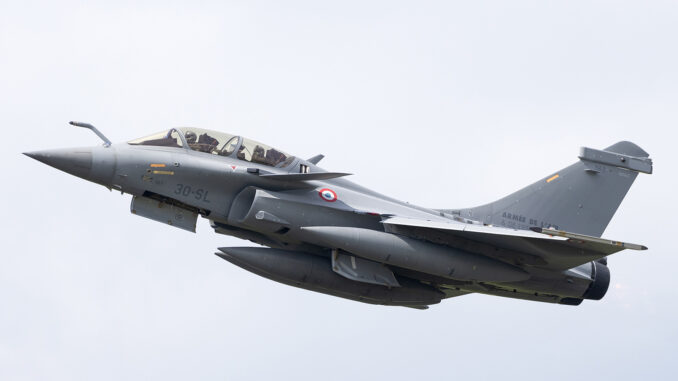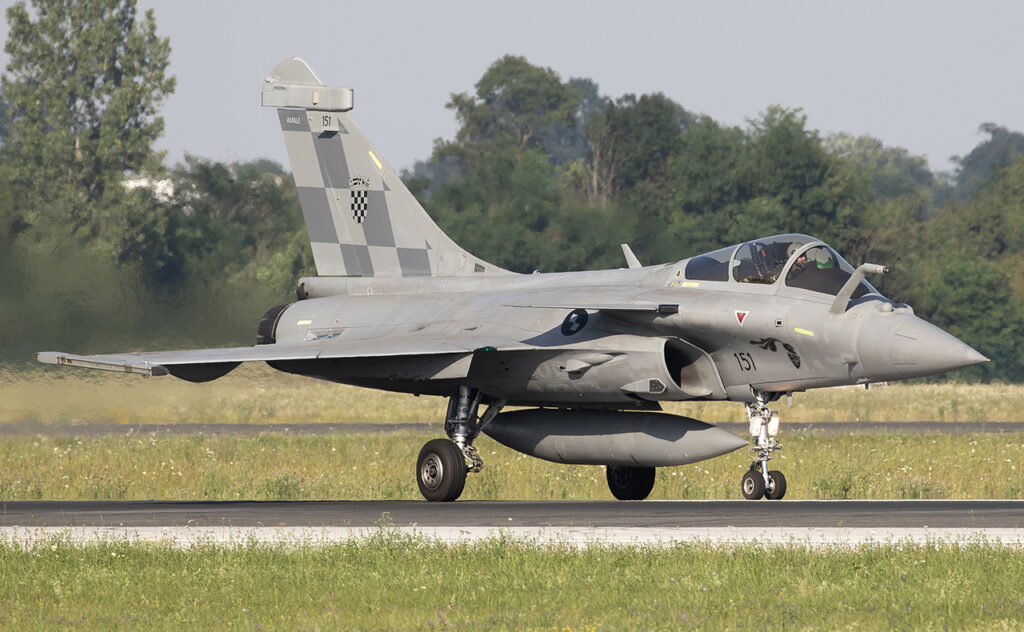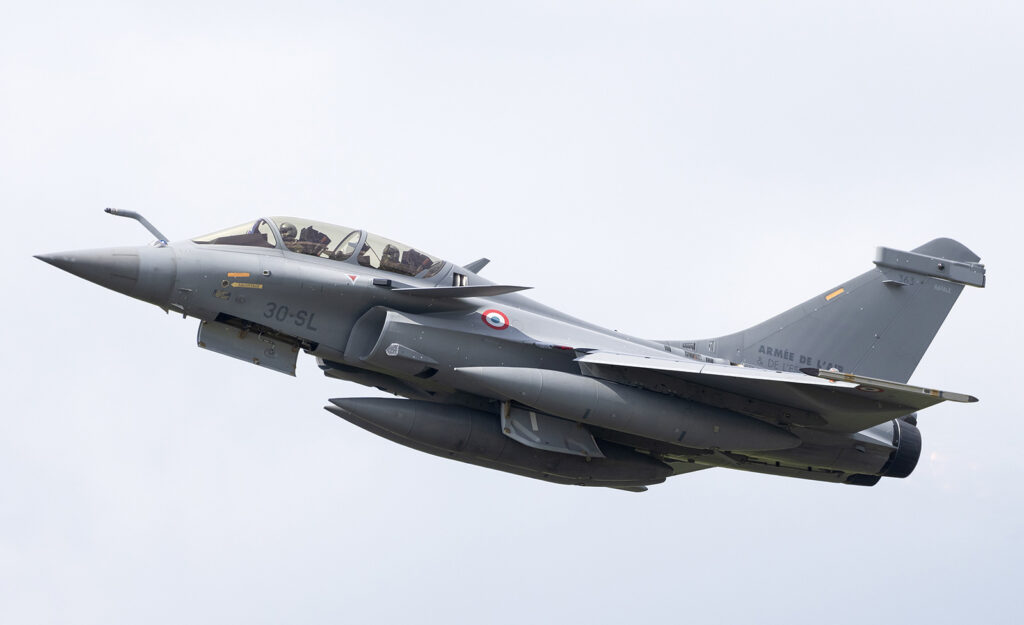
Historic agreement between France and Serbia: 12 Rafale fighter jets to modernise Serbian defence, strengthening military cooperation and European relations.
French President Emmanuel Macron has signed a major agreement with Serbia for the sale of 12 Rafale fighter jets, marking a key step in the modernisation of Serbia’s defence. The deal, worth an estimated €3 billion, symbolises a strategic shift by Belgrade as it seeks to move away from its historical dependence on Russia. The acquisition of these aircraft will enable Serbia to strengthen its military capabilities while further integrating its forces into European defence structures.

A strategic agreement between France and Serbia
During his visit in August 2024, President Emmanuel Macron made official the sale of 12 Rafale aircraft to Serbia, marking a significant turning point in military relations between the two countries. The agreement, worth €3 billion, provides for the delivery of nine single-seat and three two-seat aircraft by 2029. The contract illustrates Serbia’s desire to modernise its armed forces, moving away from its traditional dependence on Russian military equipment, particularly at a time when relations with Europe are becoming increasingly important.
The need to modernise the Serbian army
Serbia’s current fleet, made up mainly of aircraft of Russian origin, is largely obsolete. The choice of Rafales to renew this fleet is part of a wider strategy to modernise Serbia’s military capabilities. These aircraft, equipped with cutting-edge technologies such as the AESA (Active Electronically Scanned Array) radar and Spectra electronic warfare systems, offer unrivalled versatility. They are capable of carrying out air superiority, reconnaissance and ground strike missions, meeting a broad spectrum of operational requirements.
Serbia’s purchase of these Rafales is not just a matter of military modernisation; it is also a strategic investment with economic and geopolitical implications. With this contract, Serbia is strengthening its ties with France and, by extension, with the European Union. The deal could also serve as a lever for other economic partnerships, particularly in the energy and infrastructure sectors, where French companies are already well established in Serbia.
The role of the Rafale in Serbia’s European integration
The Rafale acquisition could also play a key role in Serbia’s integration into Europe. The country has been a candidate for membership of the European Union since 2012, so this move could be seen as Belgrade’s desire to align itself more closely with European defence standards. In addition, enhanced military cooperation could facilitate the normalisation of relations with Kosovo, a condition often mentioned as a prerequisite for progress in accession negotiations.
The agreement could also have repercussions for relations between Serbia and Russia. Serbia has traditionally relied on Russia for military equipment and diplomatic support, particularly on the Kosovo issue. However, this purchase marks a gradual distancing, if not a strategic repositioning, of Serbia towards the West. For France, the deal strengthens its position as a leader in Europe’s defence industry, while consolidating its influence in the Balkans, a region of strategic importance to the EU.

Implications for the French defence industry
For the French defence industry, this agreement represents a major victory. The Rafale, produced by Dassault Aviation, continues to make its mark on the international stage, with recent sales to countries such as India, Egypt and Qatar. This commercial success reinforces France’s competitiveness in an increasingly competitive global market, where defence technologies play a crucial role in diplomatic and strategic relations.
War Wings Daily is an independant magazine.